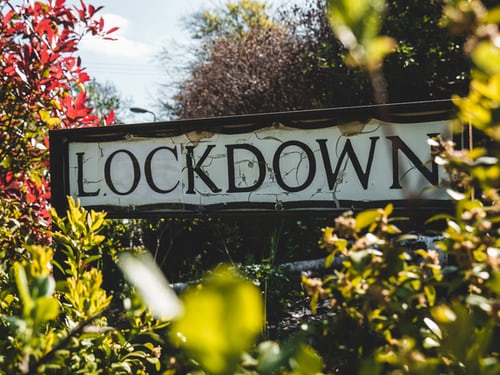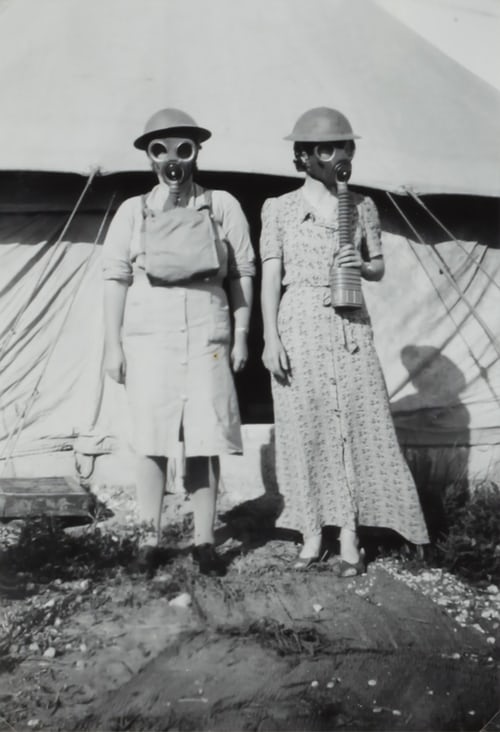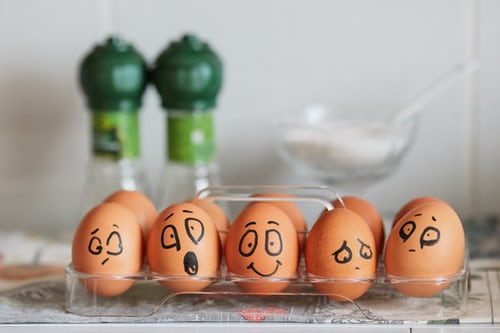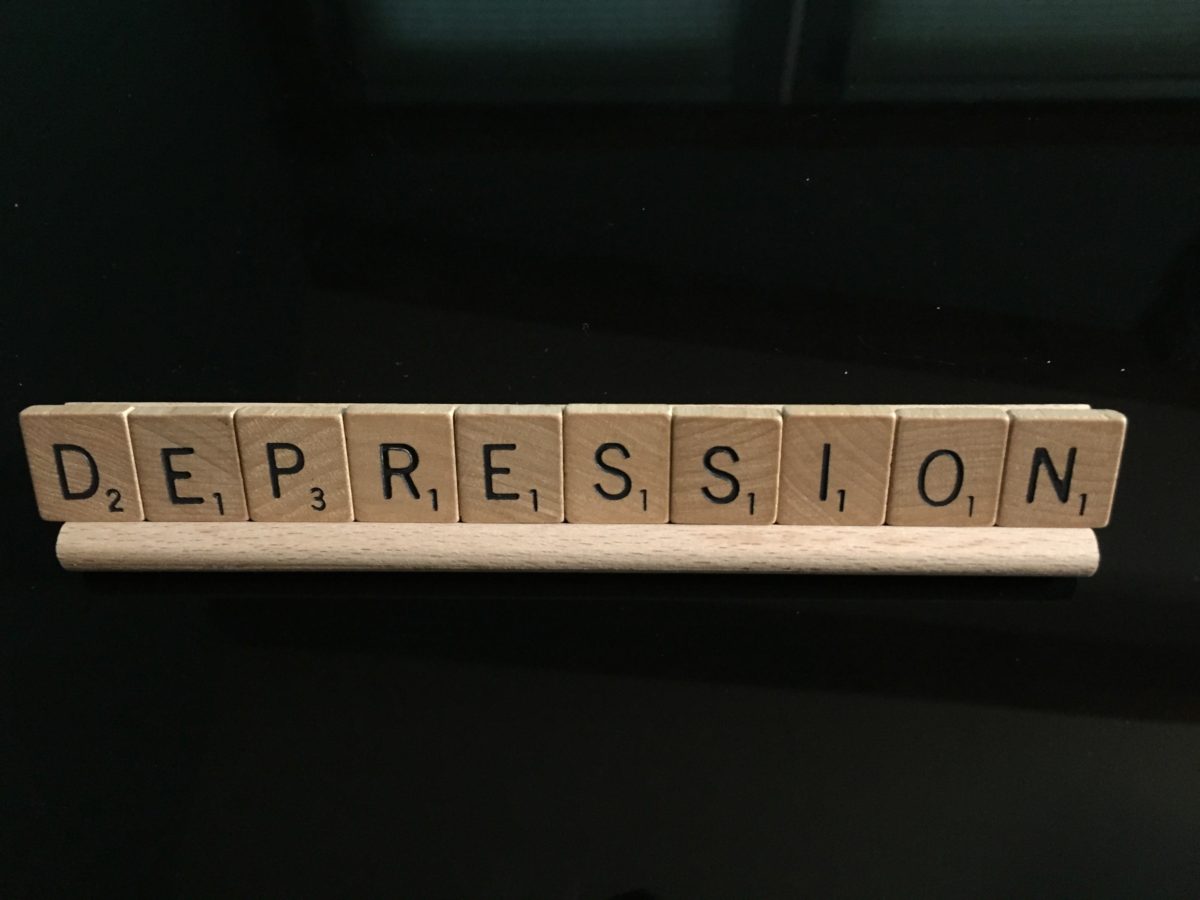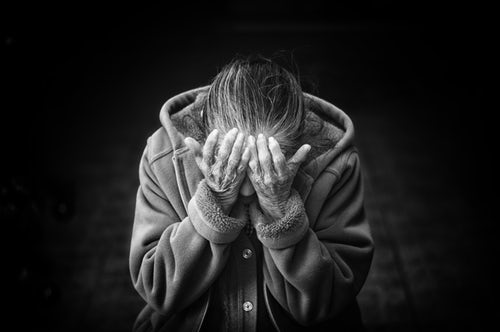Is Coronavirus fear driving you to rebellion and protest or forcing you to hide—fearful and anxiety-ridden—indoors?
Fear drives us to do some pretty irrational things—like reacting rather than thinking and acting prayerfully, intelligently, and purposefully; throwing all caution to the wind and taking unnecessary chances; or—in this case—driving us to turn our homes into quarantine cells.
Where are you right now?
Reacting, thinking and planning?
Hiding, or rebelling?
Paralyzed by fear or crying for freedom?
And why?

Stopping and thinking COVID-19 fear through—
Now, maybe more than ever in some of our lives, it’s critical for us to make the right decisions. The stakes are high.
Unfortunately, with all the conflicting data we’re bombarded with (if you’re paying attention to the bombardment; which, by the way, only heightens the fear), it’s difficult to know who to listen to. What to believe.
While God tells us it’s important to have a multitude of counselors, varying and conflicting opinions abound. We’re not sure who those wise counselors are that we should heed right now.
Our orderly worlds have been destabilized, and we’re searching for ways to right them again.
But there are stakes involved. For everyone.
What are the stakes for you?
Individual and Collective Considerations—
Each of us needs to look at our individual situation. How can we best get through this time emotionally, physically, spiritually and financially?
To figure that out, here are some of the serious questions we might ask ourselves:
Am I out of work and needing to support our family?
Do extended family members need physical or emotional help?
Do I and my family need help?
If my income is stable and I’m able to work from home, is it worth forcing a return to normal—maybe too quickly—and risking exposing high-risk friends, family or feeble elderly to my (possibly) asymptomatic condition? Risk getting the vulnerable sick.
Could my outdoor protests risk taxing an already-overwhelmed hospital and exhausted medical staff? Am I showing by my actions that I don’t really care as much as I say I do about those front line workers? Or my neighbors.
Do I have that “elective” cancer surgery when delaying it puts me at even greater risk of waiting too long and succumbing to the cancer—that didn’t go on hiatus for the virus?
Or maybe you’re thinking:
I’ve examined all my options. I didn’t qualify for a small business loan, or got turned down, and I need to work to provide for my family. That relief check is only going to take me so far.
I really want to go to the beach, and the Constitution guarantees my right to peaceably assemble there with my like-minded friends.
I have a right to assemble, so I’m going to show up at the governor’s mansion armed to the teeth with a show of firepower force to prove it. Intimidation. That’s the ticket.
In his first letter to Timothy, (1:2-3), the Apostle Paul says that we need to pray for our leaders so we can live peaceful and quiet lives. That’s the main goal here.
Living in peace.
Paul says that goal is good and pleases God our Savior.
I can live in peace as long as someone allows me to earn wages to support myself and my family, pay whatever taxes the government extracts, travel to, from and when and where I desire, and be allowed to worship and practice my religion “in godliness and holiness.”
I’m not making a political statement here. And I’m not going to divulge what I think about the lockdown and quarantine “laws.”
What I am encouraging everyone to do is to ask themselves the right questions:
What is my personal situation; and what are the stakes?
Know what they are for you, and for your community.
We are individuals with rights. But we are also part of a larger tribe. Americans like to think of themselves as country-driven, until something runs up against their personal rights and independence.
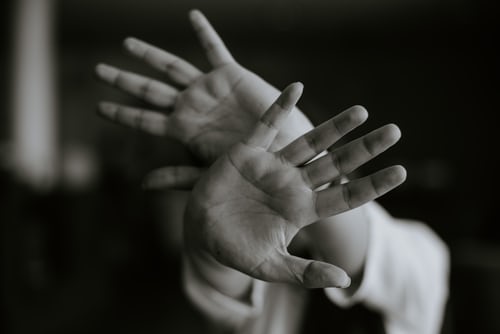
What to do about our paralyzing COVID fear?
This isn’t about “us” versus “them.” And it isn’t about shaking our fists at the virus, or the authorities, and demanding our rights.
This is about seeking out the omnipotent, omnipresent, omniscient God who loves us, knows all about the ins and outs of this virus, cares for our pain and fear, and wants us to enjoy peace in the midst of this storm.
I know that’s sometimes easier said than done. But it’s the truth. If we earnestly seek out God and ask, He’ll gracious give us the kind of peace we need to get through this.


Why should you ask for and receive peace?
We should ask God for peace because research indicates that those who enjoy that personal, calming and fulfilling relationship with the Lord—particularly followers of Jesus Christ—are suffering less anxiety, fear and depression during this COVID “crisis,” and the unbelievers are suffering more.
We can win this fear battle. We can tamp down reactive rebellion. If we’re able to stay home, we can view it as a time of rest and joy rather than a time of prison.
How do I know that?
Because I had to experience something similar to this 25 years ago.
Assessing my personal stakes—
A little over 25 years ago, I was confined to bed during my pregnancy with my younger son. Completely confined. No getting up and meandering into the kitchen for a snack. No sitting up to relieve the hip and backache.
No freedom.
And I couldn’t even lie flat. My legs, pelvis and chest had to be propped up higher than my head to relieve the pressure on my cervix, which had been sewn shut after I went into premature labor at 22 weeks.
For three months I was only allowed to get up to walk to the bathroom—four steps away. The only exercise I got was contracting my calves to point my toes to reduce the risk of getting blood clots in my legs. I gingerly maneuvered my increasing bulk from one side to the other to avoid getting pressure sores on my hips.
Because my digestive tract shut down a week into the quarantine, my meals were reduced to canned spinach, orange juice, sauerkraut juice, and Ensure. (Yum!) My husband bought it by the carton loads.
I was scared I was going to lose another baby to a high-risk pregnancy problem.
But I was determined to give it my best shot. I counted the cost—the stakes.
They were very high indeed.
Stay in bed and improve my chances of giving birth at full term to a healthy baby.
Or push the envelope, get up when I felt like it, and risk losing it all.
Four months didn’t seem too long, until I parked myself in that bed.
Every day I put a one-day-more check mark on the little pocket calendar propped on the table next to my bed. I counted the number of days I’d successfully lain there, and the number of days remaining. I noted those on the calendar too. If I made it through a morning and into the afternoon, I was overjoyed. One more minute, one more hour, one more day improved the chances.
Alone every day in a big house on four acres in avocado country. I’d eagerly await my husband and four-year old son’s arrival home, to chat with them for a half hour, until they dispersed to do other things. We had no cable TV and only two major channels that always snapped off to bug races by midnight, sometimes the hardest time to be with myself. I watched the entire O.J. Simpson trial. Got to be familiar with his lawyer Johnny Cochran and the rest of the circus. It wasn’t the most inspiring five hours a day, but it kept me entertained.
I couldn’t even enjoy the outside.
Or see it.
The only window in the room was behind my bed, and I couldn’t sit up and look outside.
The French door to the outside had a window it, but it was covered with blinds that didn’t flip open. They could be rolled up, but because the afternoon sun shone in the room and heated it up too much, the blinds remained closed. The only thing I could see through the slats was a little sun during daylight, and a sliver of moonlight at night.
Day after tedious day, I did the same thing. It became a ritual. A ritual I clung to. It was the only thing giving me any sense of stability and hope.
Within a month I thought I was going to go nuts.
And the longer the time went on, the more fearful I became. In spite of the better odds, my anxiety became more pronounced. Depression settled in at night.
Around the third month, the panic attacks started.
I’d never had a panic attack before. It was frightening.
And it nearly drove me out of bed.
And if I had gotten out of it, I likely would have lost the battle.
And that’s what could happen to us during this pandemic.
We could get out and return to normal too soon. Test too much of the waters. Not see the rip current beneath the surface ready to sweep us away from safety.
Or—after informing ourselves to the best of our ability, taking counsel, and praying fervently —we could determine in our heart to do what we have to do. Maybe return to work; open our family business to willing customers.
Whatever that is for us, and for our family. And for our community.
Striving, in as much as possible, to live at peace.
How do you confront fear and keep going in spite of it?
Staying in bed like that was tough, and lonely.
My doctor reminded me during my check-in phone calls with him that it was a tiny portion of my life to sacrifice. I knew he was right.
But when it was all over (I made it three out of the ideal four months and gave birth to a six and a half weeks premature baby boy who is now six-feet tall and finishing law school), he shook his head and said, “I don’t know how you did it. It must have been shear determination.”
I smiled and shook my head. “No. Determination had nothing to do with it. If it weren’t for God and the heavenly encouragement He gave me through different sources—friends, motivational tapes, and uplifting messages on Christian radio—I would never have made it. I would have gotten out of that bed a long time ago.”
He simply nodded. As though he was in awe.
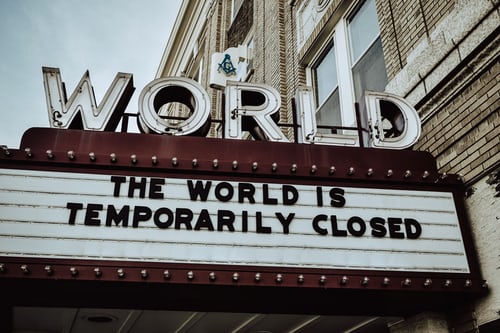
Coronoavirus-19 is an individual problem, and a community problem—
During this pandemic of worldwide “we,” we stand both alone—sometimes in isolation—and together.
As Christian artists for King and Country, Tori Kelly, and Kirk Franklin sing in their recently released song “Together,” (filmed during quarantine from each of their homes),
we will fall together,
or rise together.
But it may be the individual decisions that cause either one of those scenarios to happen.
What are the stakes for you?
They do affect all of us.
Invitation—
Have you spent a lot of time in prayer, reflecting on this pandemic and what it means for you, your family, and your community?
What is God saying to you, and what are you going to do about it?
What is the hardest part of the quarantine for you?
What lifts you up, makes the quarantine easier, and reduces your anxiety and depression?
May God give you the knowledge, wisdom and discernment you need to answer all of your coronavirus questions and dispel your deepest fears.
Until next time,
May God protect and guide you, in all ways.
Andrea
Andrea Arthur Owan, M.S., A.T., R., is a fitness pro, chaplain, and award-winning inspirational writer. She works and writes to help people recover from grief and loss and to live their best lives — physically, emotionally, and spiritually.


